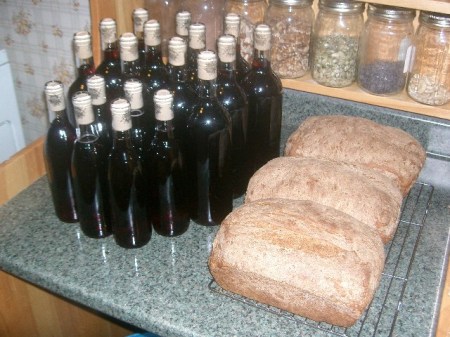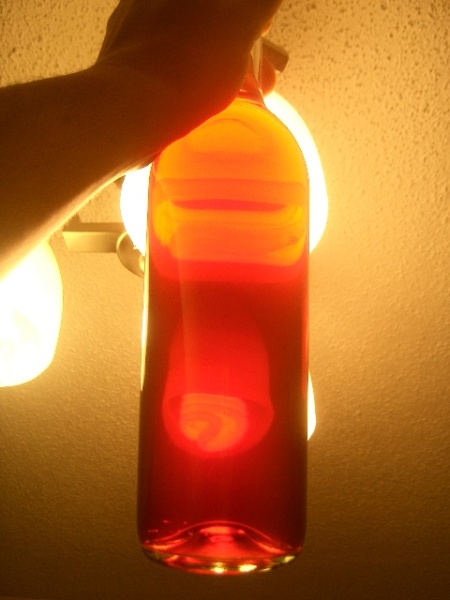Alexis finally had an unobstructed weekend off from her Medicine rotation, and a sleet/rainstorm made ground conditions ideal for burning brush, so we headed Down East for the weekend. Saturday morning we made for the orchard with newspaper, kindling, matches, and a couple gallons of old oil. My dad secured a burn permit from Rosemary Hentz, one of the leaders of the town fire department, and we got to work. The procedure goes like this: Hack a hole in the base of the pile on the upwind side with a chainsaw, crumple up a bunch of newspaper and heap an armload of kindling on top, then drizzle a pint or two of oil over the whole thing. Then you touch off the newspaper and let the kindling get going hot. The traditional technique for lighting a brush fire involved use of an old used tire, but in the interest of environmental responsibility I’ve given that up.
Especially if the brush is a bit green, you will need to feed sticks into the gap between the kindling and the brush above to keep a supply of fresh fuel linking the embryonic fire to the rest of the pile. Eventually if it catches on in the larger pile it gets too hot to feed any more, and then you move on to light the next pile. We burned 5 piles in all on Saturday – three in the orchard, one along the stone wall where the maples will go, and my grandfather’s annual burn pile in the middle south field. Unless the wood is very dry, the fire will generally burn itself a hole and die down, and then you have to feed more brush from the edges of the pile to heat it up again and convince it to eat further into the pile. Or, you can go the modern route – my dad brought over the little Bobcat excavator, and pushed the piles in on themselves, yielding a very satisfying conflagration. It’s also tempting to do more cutting while the fire is burning and the machine is handy, so we did a bit more thinning to the west of the orchard and took out some saplings to open up a new yard for fitting firewood on a piece of high ground to the north of the cabin.
This morning the piles were barely smoldering, and we didn’t get another permit, so rather than burning more we worked down the stone wall, improving the woods road and clearing more for the sugar maples. We have a ridiculous amount of firewood at this point; it’s a shame it’s not worth more than it is; I paid $140 per cord for green fitted hardwood this summer, and under good conditions it would take me at least a day of hard labor to fell, buck, and split that much wood. Back in the lean times of the early ’80s my dad made some money one winter by selective cutting a neighbor’s woodlot and selling maybe a hundred or so cords; perhaps as the cost of petroleum rises it will once again be worth the time to produce and sell firewood. Meanwhile, we’ll try to keep ahead of the stuff we’re felling, so my grandfather burns it before it gets soft.


